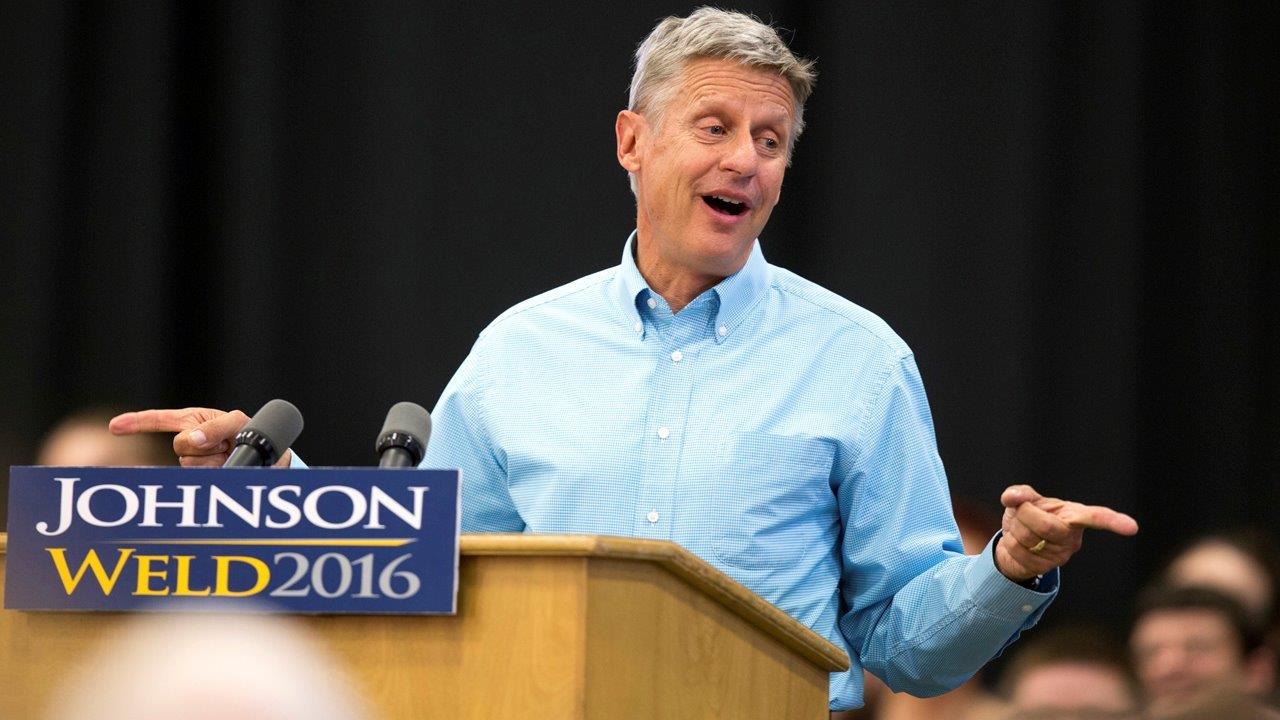Gary Johnson Hopes to Impact Clinton and Trump Equally
Libertarian presidential nominee Gary Johnson emphatically refuted the idea of dropping out of the 2016 presidential race.
In an interview with the FOX Business Network’s Mornings with Maria, the former Governor Johnson said he takes offense to the comparison of being more of a Ralph Nader instead of a Ross Perot.
“I really take offense. I really take offense to that. I am the first vote for so many people. I am the first vote,” Johnson said.
American presidential elections are not set up to favor a third-party candidate. Historically, candidates representing a third-party have seen a decline in polling averages as they head towards the election. Candidates are considered real contenders when they reach a rate of 10% in the polls--Johnson is polling at eight percent among likely voters according to a recent Monmouth University poll.
Despite low poll numbers preventing him from participating in the debates, Johnson said he expects to impact Hillary Clinton and Donald Trump equally and doesn’t see his vision for America through both candidates.
“It’s not an option to do nothing. We cannot continue our military interventions. We cannot continue to support regime change that has resulted in so many thousands of innocent [people], people caught in the crossfire in Syria. It goes on and on,” Johnson said.
Johnson reacted to last night’s presidential debate by facetiously saying the American people have a brighter outlook after listening to Clinton and Trump debate.
“She did a better job of articulating that government will be the answer to all our problems. She did a better job articulating that. Donald Trump I think you know there’s a certainty that there is an uncertainty when it comes to Donald Trump.”
The former New Mexico Governor said he doesn’t see how any presidential candidate could avoid discussing their plan to reduce government spending.
“It’s not an option to not talk about reducing spending. It’s not an option to not talk about not reforming the entitlements, Medicaid, Medicare, and Social Security. They are not going to be around for future generations,” Johnson said.




















